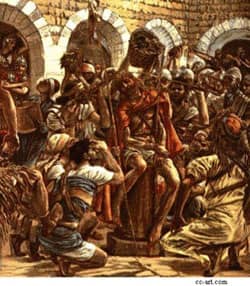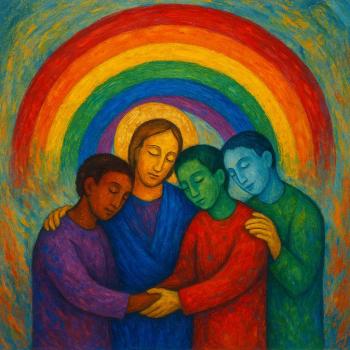 Next Sunday, November 21st, is the Feast of our Lord Jesus Christ the King. Here's a great bulletin insert by Paul Turner about this feast. Just make sure to get the necessary permission before reprinting it!
Next Sunday, November 21st, is the Feast of our Lord Jesus Christ the King. Here's a great bulletin insert by Paul Turner about this feast. Just make sure to get the necessary permission before reprinting it!
The liturgical color for the feast is white or gold.
I also found this podcast from Vatican Radio with a musical historian, Msgr. Philip Whitmore, discussing some of the music related to the Feast. It's worth listening to!
This solemnity of the Lord is always celebrated on the last Sunday of Ordinary Time. The following Sunday, November 28th, we will begin a new church year with the First Sunday in Advent.
November is traditionally the month when Catholics remember and pray for their dead. The month begins with the Feast of All Saints, and continues with the Commemoration of All Souls, and concludes with the great harvest feast of Christ the King.
Catholics pray for the dead at every Mass, during the Eucharistic prayer, and usually, also during the General Intercessions. A good way to remember the dead during the month of November is with a special Book of the Dead, in which parishioners can be invited to inscribe the names of their beloved dead, to be remembered at all the Masses during the month. The Book of the Dead can be displayed on a stand near the baptismal font and the Paschal candle.
Click here for next Sunday's readings.
Here are a few good sites for exegesis (an explanation of what the biblical texts are trying to say):
General Intercessions (Prayers of the Faithful):
The general intercessions at Mass should be written in the community that will pray them. Don't rely on canned prayers. Your community deserves someone who will pray about what this particular community's needs are this week, and then help them to articulate their needs and the needs of the larger community.
General intercessions should be just that: general enough that everyone can pray them. Prayers for the world, for the local community, for the sick, for peace, and for the dead should be numbered among the prayers you articulate. Adding a list of the local sick and deceased is a good way to make these prayers the prayers of this local community. Here are some general principles and a good example of general intercessions for next Sunday.
When I am preparing to preach, my process includes a number of pieces: 1) prayer with the scriptures 2) a weekly Bible study with parishioners on Tuesday morning that forces me to interact with the texts before Friday! 2) looking at a few different "homily helps" not in order to use a canned homily (honestly, I've never done that), but instead, sometimes to find a different angle, or a starter story, or some particularly useful insight.
The sources I use include:
- The Preachers' Exchange is a great website for Catholic preachers, by Jude Siciliano, OP. Well worth adding to your Favorites list.
- Celebration, published by NCR, is my favorite homily preparation type service, though it describes itself as a "comprehensive worship resource." It is an ecumenical and multi-cultural resource, has very fine scriptural scholarship and homily starters, interesting and useful articles and features, a daily Mass supplement. Overall, a lot of liturgical and preaching bang for your hard-earned buck!
- Prepare the Word is an online resource published by True Quest, whose strongest asset is Alice Camille, one of its writers, but whose weakest link is customer service and subscriptions.
- Connections, published by Media Works and edited by Jay Cormier, is a great resource: a couple of short stories, fables, news events that relate (some more, some not quite so much!), but which provide only a springboard for your own preaching...
- This Sunday's Scripture, is published by Word Press and is one of the best available resources. Good exegesis and pastoral application, and some useful homily starters. This resource is grounded in a prayerful weeklong approach to the Sunday scriptures and preaching.




